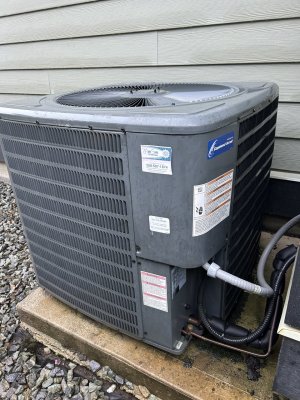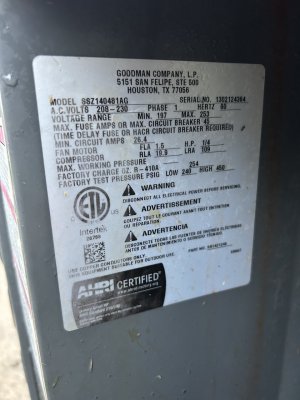Newf
Crew Member
Sorry, not a fishing post but such knowledgable folks on here I figured someone will have an opinion. The compressor on my heat pump crapped out a few days ago. Just over 10yrs old so out of warranty. (of course)
Was quoted around 4K to replace and install new compressor,,,,,11K for a new outdoor unit replacement in kind,,,,and 13K for a different unit that is supposed to be more efficient etc.
My questions: If I repair the unit with a new compressor, given that the unit is 10yrs old, is this just the start of other breakdowns with fan motor, circuitry etc? Should I bite the bullet and get a new one?
If I were to replace the entire unit are there efficiencies in newer style models or is that just a sales pitch or worth the extra 2K for an upgrade? (the one quoted was a Samsung Hylex,,,,,means nothing to me)
Thanks in advance to anyone willing to offer an opinion. This is my first heat pump so I know nothing about them.
Was quoted around 4K to replace and install new compressor,,,,,11K for a new outdoor unit replacement in kind,,,,and 13K for a different unit that is supposed to be more efficient etc.
My questions: If I repair the unit with a new compressor, given that the unit is 10yrs old, is this just the start of other breakdowns with fan motor, circuitry etc? Should I bite the bullet and get a new one?
If I were to replace the entire unit are there efficiencies in newer style models or is that just a sales pitch or worth the extra 2K for an upgrade? (the one quoted was a Samsung Hylex,,,,,means nothing to me)
Thanks in advance to anyone willing to offer an opinion. This is my first heat pump so I know nothing about them.


